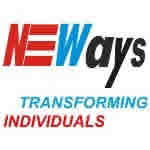|
|
Creating Effective Budgeting and Cost Control Strategy Course
NGN 265,000Get 5.00% off
|
Venue: Lagos
Other Dates
| Venue | Date | Fee | |
|---|---|---|---|
| Lagos, Lagos State, Nigeria | 19 - 21 Aug, 2025 | NGN265000 | |
| Lagos, Lagos State, Nigeria | 18 - 20 Nov, 2025 | NGN265000 |
Successful organizations, both public and private, are recognizing that the employee assessment and selection process must be viewed as part of a larger, inter-connected talent management strategy; a strategy where emphasis is not only on attracting, assessing, and hiring top talent, but also on developing and retaining excellent employees.
Course Contents
Day One
- The Seven Pillars of Talent Management Strategy
- Increasing employee engagement
- Increasing workforce productivity
- Increasing return on training and development investments
- Increasing percentage of HR time spent on strategic activities
- Reducing the cost of HR function
- Increasing employee retention rate
- Reducing time to close a workforce capability gap.
- Recasting of the HR purpose
- What are we trying to accomplish?
- Defining a Talent Strategy - right talent in the right roles
- Integrating talent planning system with business planning system
- Critical insight into employee satisfaction
- Relating Talent and the organization’s bottom line and brand
- A correlative internal culture strategy.
Day Two
- Employee Engagement Levels
- Integrated interests of business and of employees
- Motivation
- Collaboration
- Loyalty - Career paths and employee aspirations
- Increasing workforce productivity
- The imbalance in demand and supply of competencies
- Misaligned objectives
- Hiring the right person for the right position
- Equipping people to increase performance
- Transparency of staff cost and productivity
- Reducing the cost of HR function - financial metrics
- Cost per hire
- Recruitment
- Retention costs.
Day Three
- Increasing employee retention rate
- Bind the critical, but risky talent
- Build the future talent requirements
- Buy the critical urgent talent
- Borrow the short-term skills requirement
- Properly designed compensation and rewards programmes
- Liberate people's intrinsic motivation
- Increasing percentage of HR time spent on strategic activities.
- Workforce planning
- Strategic People Planning
- Talent Acquisition Planning
- Engagement and Development Planning
- Individual Performance Optimization
- Succession Planning
- Retention Planning
- Compensation Plan
- Translating into dramatically higher levels of fulfillment.
Day Four
- Reducing time to close a workforce capability gap
- How to determine “talent gap”
- Gap assessments at individual, team and organizational levels
- Sophisticated data analytic tools
- Rotation and stretch assignments
- External benchmarking and normative data comparisons
- Increasing return on training and development investments
- People development is an endless process
- Senior management Role Model development
- Senior management active as mentors and teachers
All business decision making involves analysing situations and assessing alternatives, risks and benefits. This programme offers an opportunity to acquire and then deploy new skills and ideas to achieve improved financial operations and strategies. The knowledge acquired will enhance the budget process and control processes through a variety of strategies and techniques that will provide new insights to how financial performance can be enhanced. In this programme you will participate in many aspects of modern thinking:
- Budgets and Models as a key element of management and financial strategy
- The analysis of opportunities, risks and rewards in the context of Capital Projects
- Controlling costs by analysis, modelling, KPI’s and review of the cost drivers
- Develop a broader view in the context of the enterprise’s objectives and constraints
Course Outline
The need for Financial Control in business
- Understanding accounting principles and methods
- Management accounting versus financial accounting
- The relationship between business management and financial management
- How budgeting fits into the bigger picture
- How cost management improves an organisation’s financial position
- Key aspects of managing working capital
Capital Budgeting and Investment Appraisal
- The time value of money
- Understanding Appraisal Techniques – Net Present Value (NPV), Internal Rate of Return (IRR) and Payback period
- The use of Sensitivity analysis in evaluating projects
- Strategic considerations in assessing capital projects
- Creating an effective Capital Budgeting framework
Cost Analysis and Management
- Understanding cost structure and behaviour
- Costs as a relationship to outputs – cost/volume/price relationship
- The concept of contribution margin
- Break-even analysis for planning and control
- Cost allocation and apportionment
- Benefit-cost analysis
Full Costing, Marginal Costing and Activity Based Costing
- Comparing full and marginal costing
- Direct and indirect costs in budgeting for decision making
- Role of costs in pricing strategies
- Activity Based Costing (ABC)
- Managing cost control
Budget Construction and Control
- Nature and purpose of budgets for planning and control
- Types of budgets and budgeting
- Creating Key Performance Indicators for financial and non-financial performance
- Building a budget
- Budgetary control and variance analysis
- Budgeting for non-financial measures -introducing the Balanced Scorecard
Who Should Attend?
- Both financial and non-financial professionals at all levels
- Delegates with a financial background will enjoy the opportunity to broaden their knowledge base in aspects of budgeting and cost control that may not be part of their current responsibilities or experience
- By participation in this course, participants whose background is not in the financial sector will gain an understanding of both the strategic and the technical aspects of budgeting and cost control involving both the financial and the operational opportunities for performance improvement
- At the conclusion of the course all delegates will gain a strong understanding of the practicalities; techniques and strategies of budgeting and cost control that will both enhance their effectiveness and contribution in their current role and their career opportunities based on the skills and insights acquired
Methodology
You will learn by active participation during the programme through the use of exercises, case studies, practical workshops, syndicate and group discussions.
Course Booking
Please use the “book now” or “inquire” buttons on this page to either book your space or make further enquiries.
| Lagos | May 27 - 29 May, 2025 |
| Lagos, Lagos State, Nigeria | 19 - 21 Aug, 2025 |
| Lagos, Lagos State, Nigeria | 18 - 20 Nov, 2025 |
| NGN 265,000.00 | (Foreign Participant($500) The program fees covers tuition, Course Materials, Tea/Coffee and Break, Lunch, Bag, Certificate of participation and administration) |
Dr Chris Egbu +2348023194131
Related Courses
 Fundamentals of Selling - Options, Strategy and Tactics Course
Fundamentals of Selling - Options, Strategy and Tactics Course
3 days, 22 - 24 Jul, 2025
Newways Consulting
 Transition to ISO 45001: Occupational Health and Safety Management System Course
Transition to ISO 45001: Occupational Health and Safety Management System Course
4 days, 27 - 30 May, 2025
Newways Consulting
 Achieving Administrative Excellence, Managing the Office of the Future
Achieving Administrative Excellence, Managing the Office of the Future
3 days, 13 - 15 May, 2025
Newways Consulting
Currency Converter





.png)